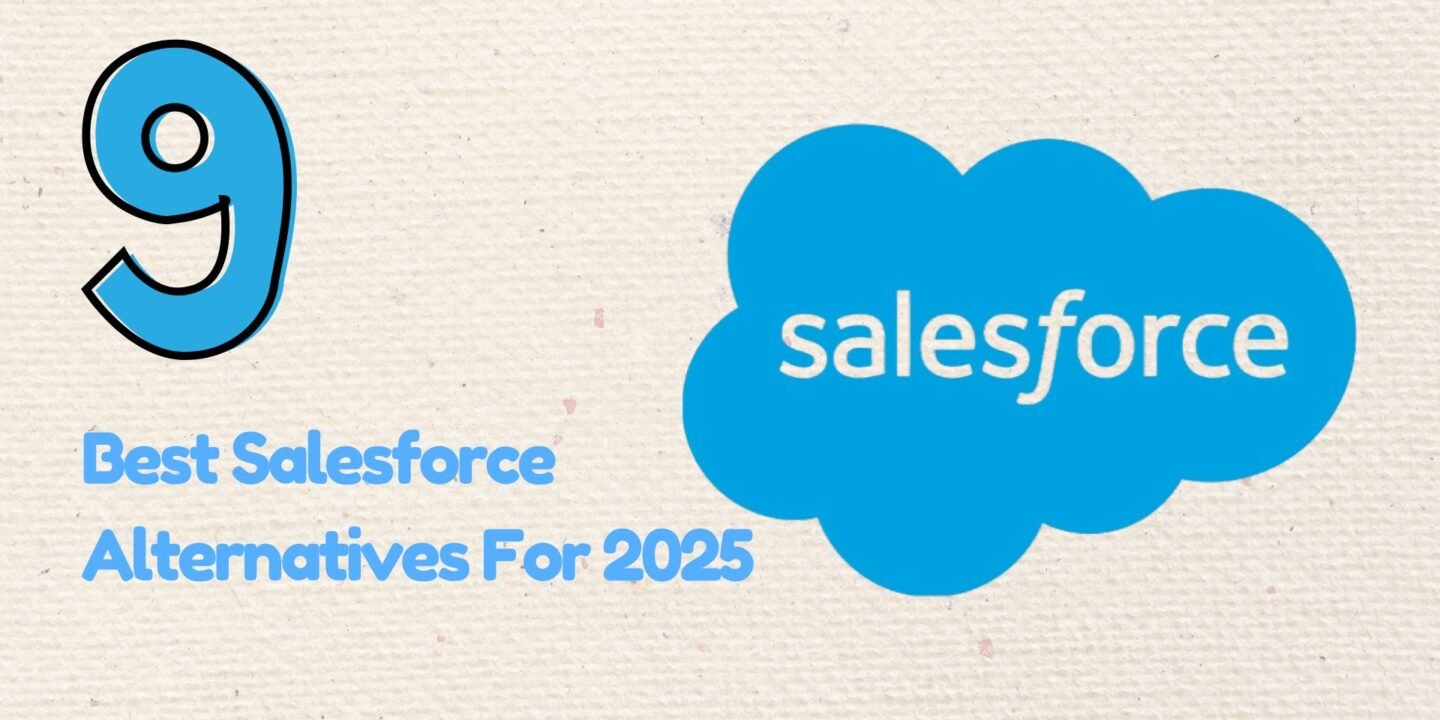
Salesforce has been a dominant force in the CRM (Customer Relationship Management) industry for years, serving companies from startups to global enterprises. Its sheer power, flexibility, and broad range of features have made it the go-to choice for businesses looking to streamline customer interactions, sales, and support. However, as powerful as Salesforce is, it’s not necessarily the best fit for everyone, especially as we move into 2025, where the market is packed with numerous CRM alternatives that provide better pricing, simpler interfaces, or more tailored solutions.
If you’re reading this, chances are you’re on the lookout for an alternative to Salesforce. Maybe it’s too complex, or perhaps the price tag has gotten too high for your business’s needs. Or maybe you’re just exploring what’s out there to see if there’s a more streamlined CRM solution for your team. Either way, this guide will take you through some of the best Salesforce alternatives for 2025, breaking down their strengths, weaknesses, and why they might be the better fit for your organisation.
But before diving into the alternatives, it’s essential to understand what Salesforce brings to the table. By knowing the strengths of Salesforce, you’ll have a clearer perspective on what you might want or need in an alternative CRM.
What Is Salesforce?
Salesforce is one of the most well-known cloud-based CRM platforms in the world. It was launched in 1999, pioneering the concept of cloud-based CRM systems, which allowed businesses to access and manage customer data from anywhere, at any time. The Salesforce platform has evolved over the years to become a comprehensive tool for managing customer relationships, sales processes, marketing campaigns, and even analytics.
Salesforce Features
Salesforce offers a comprehensive set of tools, making it ideal for companies that require powerful CRM capabilities. Below are some of the core features that make Salesforce stand out:
- Sales Cloud: This is where Salesforce really shines. Sales Cloud helps businesses manage their sales pipeline, track customer interactions, and manage deals from prospecting to closing.
- Service Cloud: Salesforce’s customer service tool enables businesses to provide personalised support at scale. Service Cloud allows for case management, customer support automation, and integration with various support channels, including email, chat, and phone.
- Marketing Cloud: Salesforce Marketing Cloud is a digital marketing platform that allows businesses to manage marketing campaigns across different channels like email, social media, and web.
- AppExchange: Salesforce has a vast marketplace, AppExchange, where users can download apps and integrations to further enhance their CRM experience. This allows for high levels of customisation for any business process.
- Customisation: Salesforce can be customised to fit almost any business need, from creating custom reports and dashboards to building entire workflows using their drag-and-drop tools.
- AI Integration: Salesforce has integrated artificial intelligence (AI) into its platform through Salesforce Einstein. It helps companies predict customer behaviour, optimise campaigns, and provide AI-driven insights for smarter decision-making.
- Analytics Cloud: With powerful reporting and analytics capabilities, Salesforce helps organisations track metrics, trends, and insights to better manage their business.
Salesforce Drawbacks
Despite its powerful feature set, Salesforce isn’t without its challenges. Here are some reasons why businesses often seek alternatives:
- Cost: Salesforce’s pricing can be prohibitively expensive for small businesses or growing teams. As your company scales, the cost of adding more users or accessing premium features can skyrocket.
- Complexity: Salesforce’s flexibility is a double-edged sword. While it can be customised extensively, that customisation can be complicated. Many businesses end up needing certified administrators or consultants just to manage their instance.
- Overloaded with Features: For some businesses, Salesforce offers more than what they need. If you’re looking for a more streamlined solution, Salesforce can feel bloated with features that you never use.
- Learning Curve: The platform can be difficult to learn, especially for small businesses that don’t have the time or resources to invest in dedicated training.
Why Look For Salesforce Alternatives?
Choosing a CRM is a significant decision for any business. It’s the backbone of how you interact with customers, close sales, and manage your day-to-day operations. Salesforce is undoubtedly a powerhouse, but it’s not for everyone. Here are some reasons companies look for alternatives to Salesforce:
- Cost Efficiency: While Salesforce is feature-rich, many of those features come at a high price. Alternatives often provide similar or even better functionality at a fraction of the cost.
- Simplicity: Many businesses don’t need all the bells and whistles that Salesforce provides. A simpler, more intuitive CRM can offer the functionality needed without the complexity.
- Tailored Features: Some companies need a CRM that caters specifically to their industry or size. Salesforce is general-purpose, but there are alternatives tailored to niches, whether it’s small business needs, e-commerce, or specialised services.
- Customisation Flexibility: While Salesforce is customisable, the level of customisation required can be overwhelming. Some alternatives offer a simpler yet equally effective customisation process.
- Customer Support: While Salesforce provides support, many alternatives are known for more personalised, hands-on customer service that can better address specific user needs and issues efficiently.
- Integration Capabilities: Not all businesses require Salesforce’s robust integration ecosystem. Many alternatives offer leaner, streamlined integrations with essential tools, which can simplify workflows.
- Performance and Speed: Some users find Salesforce slower due to its extensive feature set. Lighter CRM alternatives can offer faster performance, helping teams complete tasks more efficiently.
- Scalability Options: While Salesforce is built for scaling, it may not always suit businesses in early growth stages. Alternatives often offer more flexible, affordable scalability options tailored to smaller teams.
The Best Salesforce Alternatives For 2025
As we step into 2025, more CRM solutions are coming to the forefront, challenging Salesforce in various ways. Below are the top alternatives that offer a combination of power, simplicity, and affordability.
1. HubSpot CRM
When discussing Salesforce alternatives, HubSpot CRM often takes centre stage, especially for small to mid-sized businesses. HubSpot CRM is known for being user-friendly and offering a free tier that is perfect for startups and small businesses. It integrates effortlessly with other HubSpot tools, making it a great all-in-one platform for managing marketing, sales, and customer service.
Key Features:
- Free to Start: One of HubSpot’s biggest draws is that it’s completely free for small teams. This is perfect for businesses looking for a basic CRM to get started without financial commitment.
- Unified Platform: HubSpot’s CRM integrates seamlessly with its other tools, such as HubSpot Marketing, Sales, and Service Hubs, providing an all-in-one platform.
- User-Friendly Interface: HubSpot is intuitive, making it easy to use for teams that don’t have a dedicated IT department.
- Email Tracking and Automation: Easily track emails and schedule follow-ups to ensure no leads slip through the cracks.
- Sales Pipelines: Visualise and manage your sales pipeline with a drag-and-drop interface that makes it easy to move deals through different stages.
Why HubSpot CRM Stands Out:
- Budget-Friendly: HubSpot CRM is one of the most cost-effective options out there, especially for small teams. As your business grows, you can scale with paid features.
- Ease of Use: HubSpot’s ease of use makes it a great choice for businesses that don’t want to deal with the complexity of Salesforce.
Drawbacks:
- Limited Features in Free Tier: While the free version is great for small teams, businesses looking for more advanced features (like deeper automation) will need to upgrade to paid plans.
Best For:
- Small businesses or startups looking for a simple, intuitive CRM without a steep learning curve or a high price tag.
2. Zoho CRM
Zoho CRM is another powerful alternative to Salesforce, offering a flexible and customisable CRM solution at a much lower price point. Zoho CRM is part of the larger Zoho Suite, which includes various tools for project management, accounting, and marketing automation, making it a great all-in-one solution for businesses looking to expand their digital ecosystem.
Key Features:
- Multi-Channel Support: Zoho CRM allows businesses to interact with their customers across email, social media, live chat, and phone, all within one platform.
- Automation: Automate lead scoring, email responses, and workflow rules to streamline sales and marketing efforts.
- AI-Driven Insights: Zoho’s Zia AI offers predictive analytics, lead scoring, and sentiment analysis to help you make data-driven decisions.
- Customisation: Zoho CRM offers deep customisation, allowing businesses to tailor workflows, reports, and dashboards to meet their specific needs.
Why Zoho CRM Stands Out:
- Affordability: Zoho CRM provides powerful features at a much lower cost than Salesforce, making it a fantastic option for businesses looking to save money without sacrificing functionality.
- Customisation: Zoho CRM’s extensive customisation capabilities allow businesses to create a platform tailored specifically to their needs.
Drawbacks:
- Learning Curve: While Zoho CRM is powerful, it can be more challenging to learn than simpler solutions like HubSpot.
Best For:
- Medium to large businesses looking for a customisable CRM that integrates with a broader suite of business tools.
3. Pipedrive
Pipedrive is a sales-focused CRM designed to help sales teams close deals faster. If your business is all about managing leads and pushing deals through the pipeline, Pipedrive could be a perfect fit. Its intuitive interface makes it easy to see where each deal stands and what steps need to be taken next.
Key Features:
- Visual Sales Pipeline: Pipedrive’s pipeline interface is one of its strongest features, offering a drag-and-drop functionality that makes it easy to manage deals.
- Automation: Automate repetitive tasks like follow-up emails and move deals through the pipeline based on triggers.
- Lead Management: Track your leads, prioritise them, and stay on top of all your sales activities with easy-to-use tools.
- Email Integration: Sync Pipedrive with your email account to keep track of conversations with prospects.
Why Pipedrive Stands Out:
- Sales Focus: Pipedrive is designed specifically for sales teams, offering features and functionality that make it easy to manage a sales pipeline.
- Ease of Use: Pipedrive’s clean, intuitive interface makes it an excellent choice for teams that want a powerful yet easy-to-use CRM.
Drawbacks:
- Limited Features for Marketing or Customer Support: Pipedrive is designed for sales teams, so it may not be the best fit if you’re looking for a CRM that also handles marketing or customer support.
Best For:
- Sales-focused teams that need a simple, effective way to manage their pipeline and close deals.
4. Microsoft Dynamics 365
For businesses that are deeply ingrained in the Microsoft ecosystem, Microsoft Dynamics 365 is a natural alternative to Salesforce. It offers deep integration with other Microsoft tools, such as Office 365, Teams, and Azure, and provides enterprise-level CRM capabilities.
Key Features:
- Integration with Microsoft Tools: Microsoft Dynamics 365 seamlessly integrates with other Microsoft products, making it a great choice for companies already using Office 365 or Teams.
- AI-Powered Insights: The AI-driven insights help businesses predict customer behaviour, improve engagement, and make data-driven decisions.
- Customisable: Like Salesforce, Microsoft Dynamics 365 is highly customisable, allowing businesses to tailor the platform to their specific needs.
- Customer Service: Dynamics 365 includes a strong focus on customer service, helping businesses provide top-notch support through multiple channels, including live chat and self-service portals.
Why Microsoft Dynamics 365 Stands Out:
- Enterprise-Grade Features: For larger companies, Microsoft Dynamics 365 offers all the enterprise-grade features you’d expect from a top-tier CRM.
- Seamless Integration: If your business already uses Microsoft products, Dynamics 365 can integrate seamlessly, offering a smooth workflow across your entire organisation.
Drawbacks:
- Cost: Microsoft Dynamics 365 can be expensive, especially for smaller businesses.
- Complexity: Like Salesforce, Dynamics 365 has a steep learning curve and requires significant customisation to fit your business’s unique needs.
Best For:
- Large enterprises or businesses that are heavily invested in the Microsoft ecosystem and need a CRM that integrates deeply with Office 365, Teams, and Azure.
5. Freshsales (by Freshworks)
Freshsales is an excellent alternative to Salesforce for small to medium-sized businesses. Developed by Freshworks, Freshsales offers a user-friendly CRM designed to help teams manage their customer interactions, automate tasks, and track sales.
Key Features:
- Built-In Phone and Email Integration: Manage all communications from one platform. Freshsales offers a built-in phone system and email tracking, allowing you to call or email customers directly from the platform.
- AI-Powered Insights: Freshsales provides AI-driven insights to help sales teams make smarter decisions.
- Pipeline Management: Visualise your sales pipeline, manage deals, and set up automation to help move deals through the pipeline faster.
Why Freshsales Stands Out:
- User-Friendly: Freshsales is designed to be easy to use, making it a great option for small teams that don’t have a lot of technical resources.
- Affordable: Freshsales offers a robust set of features at an affordable price point, making it a great alternative to Salesforce for small and medium-sized businesses.
Drawbacks:
- Limited Features for Large Enterprises: While Freshsales is great for small to medium-sized businesses, it may not have the advanced features that large enterprises require.
Best For:
- Small to medium-sized businesses that need a simple, affordable CRM with built-in communication tools.
6. SugarCRM
SugarCRM is an open-source CRM platform that provides businesses with the flexibility to customise the software to meet their specific needs. It’s a great alternative to Salesforce for companies that need a customisable CRM solution without the high cost.
Key Features:
- Open Source: SugarCRM is open-source, meaning businesses can fully customise the platform to meet their specific needs.
- Modular: SugarCRM offers a modular approach, allowing businesses to build their CRM with the exact features they need.
- Automation: Automate sales, marketing, and customer support processes to improve efficiency.
Why SugarCRM Stands Out:
- Customisation: SugarCRM is highly customisable, making it a great choice for businesses that need a CRM tailored to their specific processes.
- Open-Source Flexibility: Because it’s open-source, businesses can modify SugarCRM as they see fit, making it a highly flexible option.
Drawbacks:
- Requires Technical Expertise: SugarCRM requires a higher level of technical expertise to set up and maintain than some other CRMs.
- Cost: While the software itself is open-source, customisation and maintenance costs can add up.
Best For:
- Businesses that need a highly customisable CRM and have the technical expertise to manage and maintain the software.
7. Insightly
Insightly is a CRM designed for small to medium-sized businesses that need both customer relationship management and project management in one platform. It’s a great choice for businesses that manage projects and client relationships simultaneously.
Key Features:
- Project Management: Insightly combines CRM with project management, allowing businesses to track customer relationships and ongoing projects in one place.
- Pipeline Management: Track your sales pipeline and see where each deal stands at a glance.
- G Suite and Office 365 Integration: Insightly integrates with G Suite and Office 365, allowing businesses to sync contacts, tasks, and events seamlessly.
Why Insightly Stands Out:
- Project Management Features: For businesses that need both CRM and project management capabilities, Insightly is a great all-in-one solution.
- Integration: Insightly integrates with popular tools like G Suite and Office 365, making it easy to sync data and collaborate across platforms.
Drawbacks:
- Limited Sales Automation: While Insightly offers great project management features, it may not have the advanced sales automation tools that other CRMs offer.
Best For:
- Small to medium-sized businesses that need a CRM with strong project management features.
8. Monday CRM
Though primarily known for project management, Monday offers a robust CRM that has gained popularity for its simplicity and customisation options. Monday CRM allows teams to manage sales pipelines, track customer interactions, and automate repetitive tasks, all within a visually appealing, easy-to-use interface.
Key Features:
- Customisable Workflows: Create tailored workflows to fit your specific sales processes, ensuring that your CRM aligns with your business needs.
- Automation: Automate routine tasks, such as sending follow-up emails or moving deals through the pipeline, freeing up more time for your team to focus on closing sales.
- Visual Dashboard: The dashboard offers a clean, user-friendly interface, making it easy to track the progress of deals, tasks, and customer interactions.
Why Monday CRM Stands Out:
- Flexibility: Monday.com’s highly customisable platform allows businesses to tailor the CRM to their exact requirements, making it suitable for a range of industries.
- Easy Integration: It integrates smoothly with other tools like Slack, Google Workspace, and Mailchimp, creating a seamless experience across your business.
Drawbacks:
- Limited Advanced Features: While Monday.com CRM is great for small to medium-sized teams, larger organisations may find it lacks the depth of features found in more established CRM platforms.
Best For:
- Small to medium-sized businesses that need a simple, customisable CRM integrated with their project management tool.
9. Nimble
Nimble is a lightweight yet powerful CRM designed for small businesses and individuals looking to manage their contacts and customer interactions more effectively. Its key strength lies in its seamless social media integration, making it easier to track communications and engage with prospects across multiple platforms.
Key Features:
- Social Media Integration: Nimble pulls in data from social media platforms like LinkedIn, Twitter, and Facebook, allowing users to keep track of interactions and better understand customer needs.
- Contact Management: With Nimble, you can store and organise all your contacts in one place, track communication history, and set reminders for follow-ups.
- Task Management: Manage your tasks, track deals, and set up daily reminders to ensure no opportunity is missed.
Why Nimble Stands Out:
- Simple and Intuitive: Nimble is designed for users who don’t need the complexity of larger CRMs but still want powerful tools for managing customer relationships.
- Affordable: Nimble offers a cost-effective solution, making it perfect for small businesses or freelancers who are just getting started with a CRM.
Drawbacks:
- Limited Customization: While Nimble excels at social CRM, it lacks some of the customisation options that larger CRMs offer.
Best For:
- Small businesses, freelancers, or individuals who heavily rely on social media interactions and need an affordable, easy-to-use CRM solution.
How to Choose the Right Salesforce Alternative for Your Business?
Now that you’ve seen the top Salesforce alternatives for 2025, how do you choose the right one for your business? Here’s a quick guide to help you make an informed decision:
1. Consider Your Budget
Start by evaluating your budget. If you’re looking for a cost-effective solution, platforms like HubSpot CRM or Zoho CRM offer affordable pricing with robust features. Larger businesses with a bigger budget might prefer Microsoft Dynamics 365 or SugarCRM for their enterprise-level capabilities.
2. Assess Your Business Needs
Think about what your business needs most in a CRM. Are you looking for something sales-focused like Pipedrive, or do you need a platform that integrates project management like Insightly? Consider what features are most important to your team and choose accordingly.
3. Think About Scalability
Is your business growing? If so, choose a CRM that can scale with you. Salesforce Essentials, Zoho CRM, and HubSpot CRM offer scalable solutions that can grow with your business.
4. Evaluate Ease of Use
Some CRMs, like HubSpot and Freshsales, are designed to be user-friendly, making them a great choice for businesses that don’t have a lot of technical expertise. On the other hand, platforms like Salesforce or Microsoft Dynamics 365 may require more technical know-how.
5. Look for Industry-Specific Features
If your business is in a specific industry, some CRMs offer industry-specific features. For example, if you’re in retail, Zoho CRM might be a great option with its multi-channel communication tools.
Conclusion
Choosing the right CRM for your business is a big decision, but it doesn’t have to be overwhelming. Salesforce is a powerful tool, but as we’ve seen, there are plenty of alternatives out there that offer simplicity, affordability, and tailored solutions to meet your business’s unique needs.
Whether you’re looking for a budget-friendly option like HubSpot CRM, a customisable platform like Zoho CRM, or a sales-focused tool like Pipedrive, there’s something out there for every business. The key is to evaluate your specific needs, budget, and goals before making a decision.
Remember, the best CRM is the one that fits your business, not necessarily the one with the most features. By choosing the right Salesforce alternative, you’ll set your business up for success in 2025 and beyond.


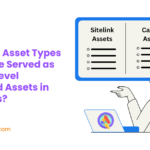

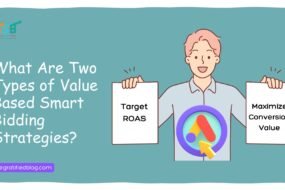
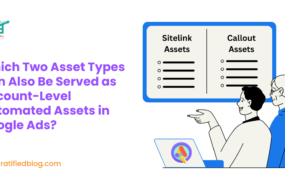

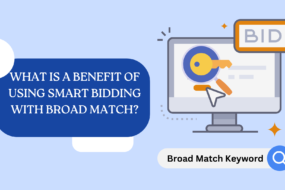
No Comments